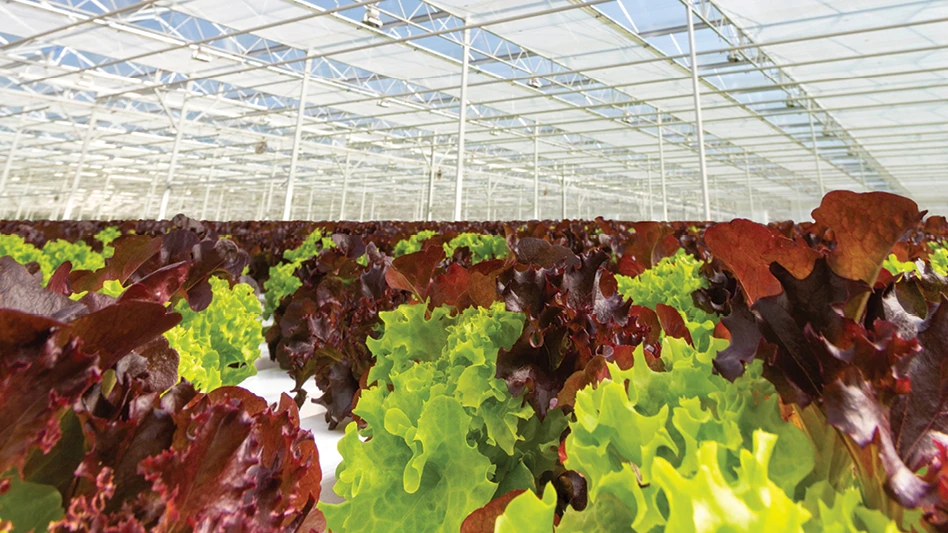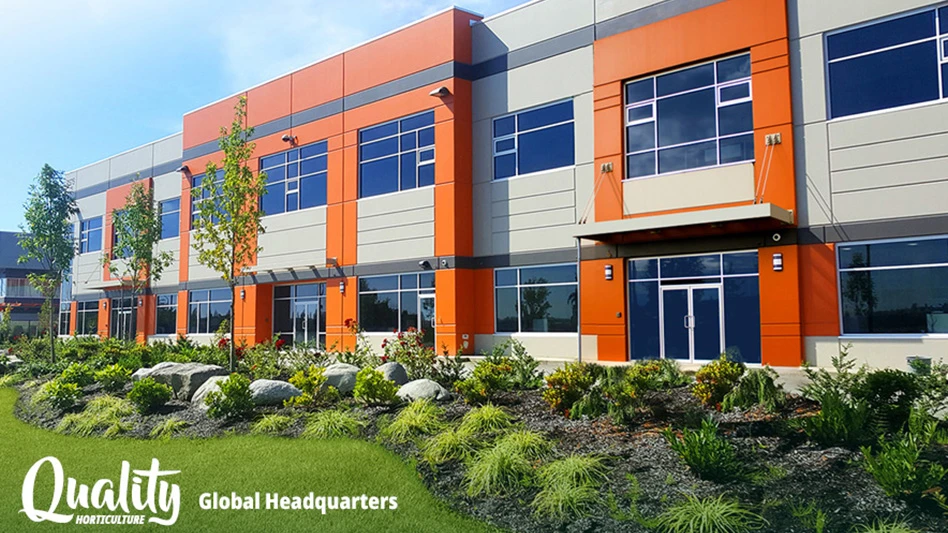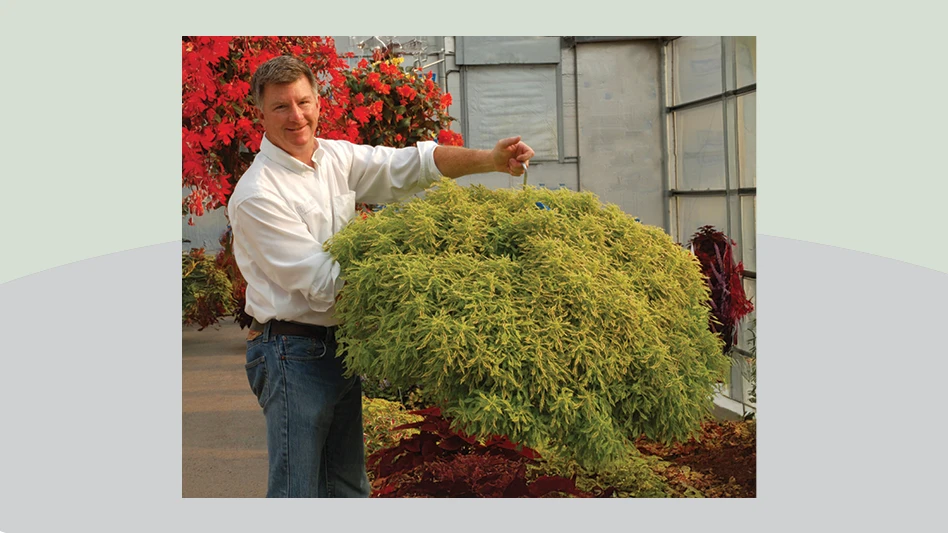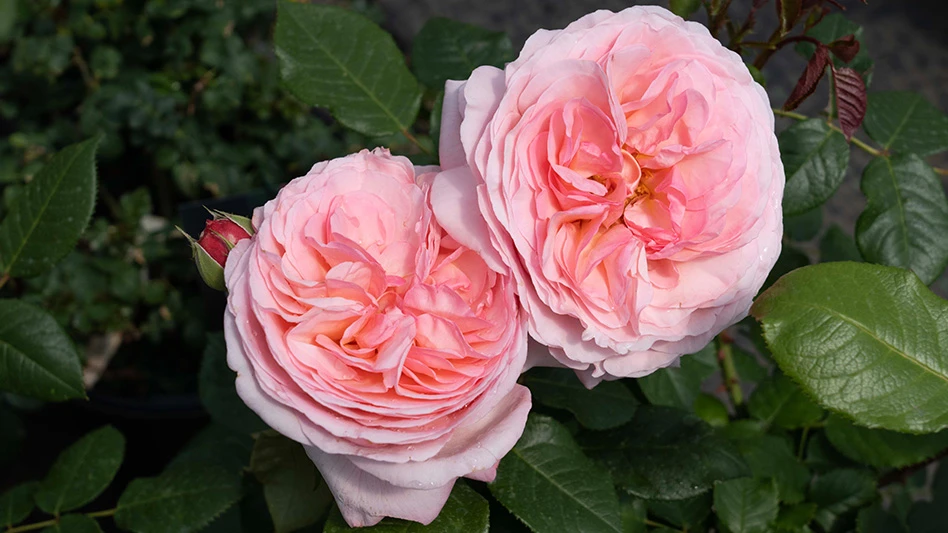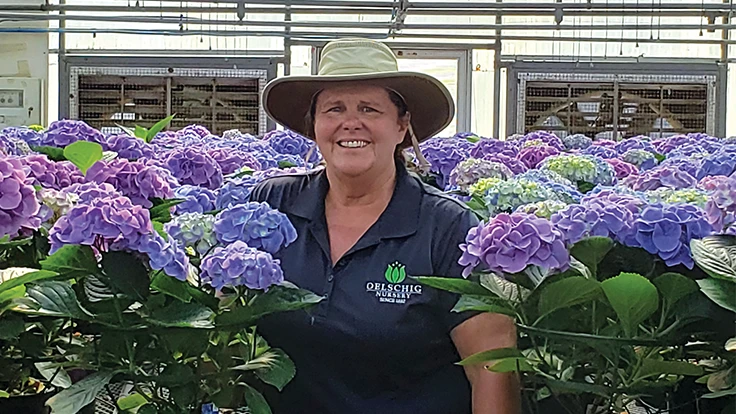


Pam Oldfield ended up in horticulture simply by being in the right place at the right time.
She happened to live across the street from a greenhouse that specialized in interior foliage. One day, about 40 years ago, a man from the greenhouse walked over looking for extra help. Oldfield, who was 18 at the time, agreed to lend a hand and as soon as she walked into the greenhouse, she immediately felt at home.
“We all get into this business because we love what we do and we stay in it because of that,” says Oldfield, an avid home gardener. “I’m blessed because it’s a good fit.”
Oldfield spent 10 years working at an interiorscape company in San Antonio, where she helped with plant installations. Later, she began to learn about the growing side of the business while working at a small operation in Alabama.
When she joined Oelschig Nursery in 1998, Oldfield continued to advance her career as she learned from third-generation business patriarch George Oelschig and head grower, Kenneth Cottros — who worked at the nursery over 50 years before retiring.
“They helped me learn the ropes as I worked my way up,” Oldfield says. Now, as Oelschig’s head grower and production manager, Oldfield wants to give other young, aspiring growers the same opportunities to learn on the job as she passes down her knowledge to the next generation.
Passing along knowledge
As head grower, Oldfield oversees nine growers at Oelschig Nursery, a wholesale greenhouse in Savannah, Georgia, that grows annuals and perennials, along with some seasonal crops and tropical plants. Most of her team is fairly new to growing — like she was when she joined the company — so she considers them apprentices.
In fact, she’s even training her future replacement: head grower-in-training Eric Thrower — the grandson of Kenneth Cottros, who trained Oldfield as his replacement several decades ago. Oldfield meets with Thrower every morning to discuss the day’s priorities and then they scout the greenhouses together to identify any issues that need attention. The nursery spans 15 acres total, with about 7 acres under production — approximately 3 of which are covered.
“We walk the crops all day long, looking and talking about what needs what,” Oldfield says. “Communication is key because the details are critical when you’re dealing with crops and making sure they’re progressing on schedule.”
In turn, Thrower is responsible for training and overseeing the other growers. The entire team meets weekly to review “why we’re doing what we’re doing and how we’re doing it,” says Oldfield, who also manages 15 employees on the production side. “I love to be able to pass it on and help someone else learn like I did.”

Industry camaraderie
Oldfield says it’s easier for young growers to learn the trade today than it was 40 years ago.
“When I first started, everybody had their secrets about how to do things. That was before the internet,” she says. “Now, you can learn anything via the internet or brokers or breeders. The information is more accessible than it’s ever been.”
In addition to sharing her knowledge directly with apprentices, Oldfield also gives them access to other training resources, such as industry trade magazines, webinars and conferences. She even coordinates local field trips for her growing team to tour nearby greenhouses.
“We have some great competitors around us, so we’ll take a field trip to show [our team] another operation,” she says. “They’re very welcoming and there’s no secrets anymore. Some of them even feed us lunch! If they want to bring their people here, we reciprocate.”
Oldfield has experienced this friendly willingness to help throughout the industry and she’s grateful to have connections with growers across the country who are quick to share advice.
“Everybody’s very accessible. I can call two or three people and say, ‘Have you had this issue? What did you do?’” she says. “It just makes life easier.”
Future outlook
Oldfield enjoys the challenge of growing and even though the days are busy and the hours are long, she finds her job rewarding — even peaceful at times.
“I get in early in the morning and it’s calm and quiet and beautiful. I get to walk through and see all the color every day,” she says. “It doesn’t feel like a job most of the time. It does get crazy, but it’s very rewarding to see something start to finish.”
Even so, Oldfield notices that it’s getting harder to find help. Growers like her aren’t just waiting across the street for opportunity to knock. Although she’s not planning to retire anytime soon, she feels lucky to have her replacement already lined up. She’s excited about the future job potential in this industry for those with the initiative to take it.
“The demand is there for growers,” she says, “so if you want to put in the time, the opportunities are endless.”
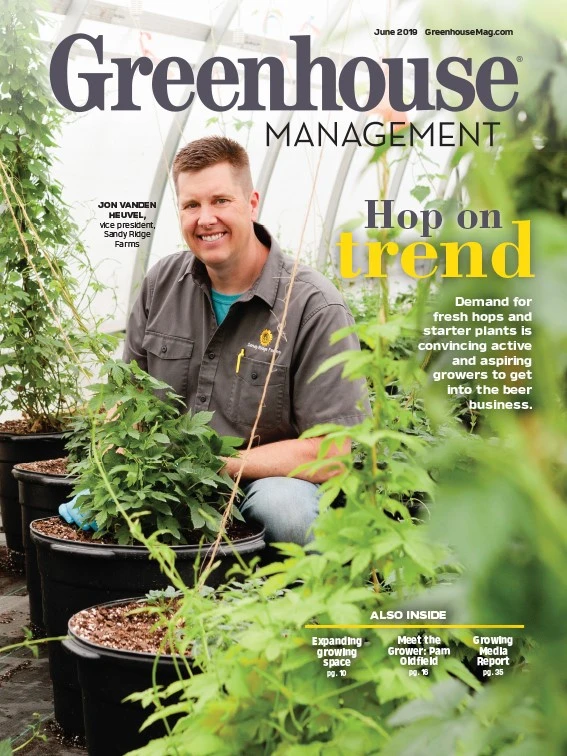
Explore the June 2019 Issue
Check out more from this issue and find your next story to read.
Latest from Greenhouse Management
- North Carolina Nursery & Landscape Association announces new executive vice president
- Plant Development Services, Inc. unveils plant varieties debuting in 2025
- Promo kit available to celebrate first National Wave Day on May 3
- Applications now open for American Floral Endowment graduate scholarships
- Endless Summer Hydrangeas celebrates 20 years with community plantings
- Invest in silver
- Garden Center magazine announces dates for 2025 Garden Center Conference & Expo
- USDA launches $2 billion in aid for floriculture growers
